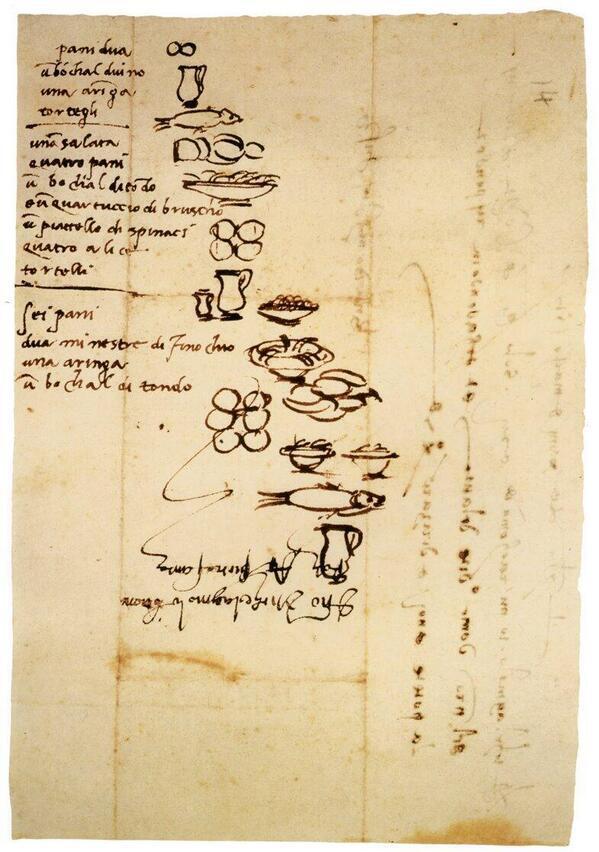
Image by Casa Buonarroti, via Wikimedia Commons
I admit to having a hard time keeping grocery lists. Do I write them by hand? If so, do I do it in a dedicated notebook, on a refrigerator pad, or on any old scrap I find around? Do I compose them electronically, using some combination of my computer, my phone, and other, more specialized devices? And do I keep separate lists for separate trips to separate stores? (Certain delicacies, after all, you can only get at Trader Joe’s.)
Living in the 15th and 16th centuries, the Italian High Renaissance sculptor, painter, architect, poet, and engineer Michelangelo faced a rather less complicated shopping problem: he had only to send assistants off to market to bring back what he needed. Though vanishingly few of this prolific creator’s papers survive today, we do happen to have a few of the grocery lists he sent with them, like that which you see above.
John Updike once wrote that “excellence in the great things is built upon excellence in the small,” and the observation holds up ideally when we think about Michelangelo’s numerous great achievements — Pietà, David, The Last Judgment, St. Peter’s Basilica — in comparison to this humble yet striking rundown of ingredients for a meal, of the same basic kind each of us scrawl out regularly. But when Michelangelo scrawled, he scrawled with both a craftsman’s practical precision and an artist’s evocative flair. “Because the servant he was sending to market was illiterate,” writes the Oregonian‘s Steve Duin in a review of a Seattle Art Museum show, “Michelangelo illustrated the shopping lists — a herring, tortelli, two fennel soups, four anchovies and ‘a small quarter of a rough wine’ — with rushed (and all the more exquisite for it) caricatures in pen and ink.” As we can see, the true Renaissance Man didn’t just pursue a variety of interests, but applied his mastery equally to tasks exceptional and mundane. Which, of course, renders the mundane exceptional.
Related Content:
Michelangelo’s David: The Fascinating Story Behind the Renaissance Marble Creation
0 Commentaires